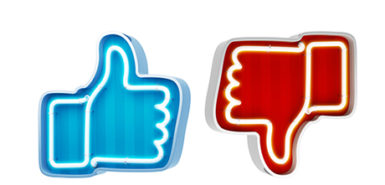
Facebook, Twitter, Instagram—the list of popular social media outlets is long and always expanding. But could staying connected through them lead to depression?
That’s the question posed by researchers from the University of Pittsburgh School of Medicine.
Nearly 1,800 Americans, aged 19 to 32, answered questionnaires about their activity on 11 popular social media sites. On average, the participants spent just over an hour a day in total on social media, and went to their accounts 30 times a week.
Whether engagement was measured in time or number of visits, the people in the top 25 percent of social media users had significantly higher odds of depression than the bottom 25 percent, between 1.7 and 2.7 times the risk.
What the research didn’t unravel is what comes first—time spent with social media, or depression. People experiencing depression could be using social media to fill a void in their lives. Or social media may lead to depression and, in turn, more social media.
Social media-depression connections:
- Seeing other people’s postings could make you believe your life is inferior.
- Excessive use could be a sign of internet addiction, which has been linked with depression.
- You may be at greater risk of cyber-bullying, which can lead to feelings of depression.
Could you be going though depression? It can be hard sometimes to recognize it in yourself. The Depression and Bipolar Support Alliance has information to help you identify your feelings and work through them. Depression treatment options include support groups, medication and talk therapy.
If you have depression, work with your health-care provider to find the right care specialists and the most effective treatment combination for you.
 /a>
/a>
 /a>
/a>
 /a>
/a>